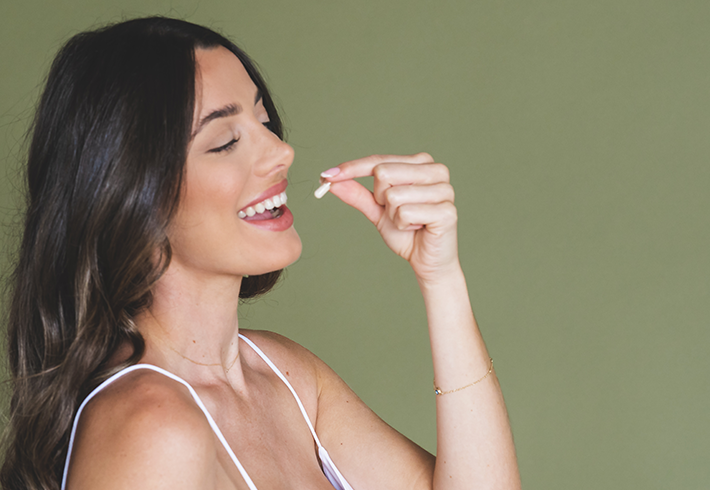Folate is just the beginning, writes Accredited Practising Dietitian and Nutritionist Stefanie Valakas of The Dietologist.
If you’re thinking about becoming pregnant and have already started to consider your diet and supplements, then pat yourself on the back – you’re already off to a good start for you and your bub. The preconception period can begin as much as 12 months before conception, and the nutrition and lifestyle practices you put in place then can have a big impact on your child’s future health outcomes. So, the longer you give yourself to set up healthy habits, the better.
What’s all the fuss about folic acid?
You might have heard about folic acid or folate as an important preconception supplement to help your baby grow and reduce the risk of them being born with a neural tube defect like spina bifida.
It’s quite common for women to be low in folate, which is found naturally in foods like green leafy vegetables, broccoli, avocado, lentils and, in Australia, fortified cereals and breads. For this reason, Australian government guidelines recommend supplementing with 400 micrograms of folic acid per day from one month before you become pregnant through to the first 12 weeks of pregnancy.
While folic acid is important, it’s far from the only nutrient to know about in the preconception period. If you’re thinking about pregnancy, here are three more to have on your radar (and on your plate!).
Iron
Why you need it: Your daily prenatal intake of iron improves the birth weight of your baby, according to a comprehensive survey of 92 separate studies. However, a recent Australian study conducted by my colleague Kaylee Slater, found the average iron intake for pregnant women was less than half the population target (10.1 mg/day, compared with a target of 22 mg/day).
Where to find it: Iron-rich foods include lean red meat, seafood and poultry as well as tofu and some wholegrains. Pregnancy targets for iron intake are high, so supplementation may also be necessary.
Iodine
Why you need it: This essential mineral is an important component for thyroid hormone production. It helps to regulate your ovulation and metabolism and, once you become pregnant, also contributes to your baby’s growth and brain development.
Where to find it: Oysters, tinned salmon and sushi with seaweed are all sources of iodine. In Australia, it’s also possible to buy iodised salt, which is used in most breads.
Vitamin D
Why you need it: Low levels of vitamin D in pregnancy have been associated with an increased risk for gestational diabetes and pre-eclampsia, plus eczema, asthma and food allergies in your baby.
Where to find it: Oily fish such as salmon and sardines, egg yolks and fortified breads and cereals are all good sources of vitamin D. Sunshine is too, so aim for safe sun exposure each day. It’s also important to eat healthy fats found in avocado, extra virgin olive oil and nuts and seeds, which help your body absorb vitamin D.
Remember: you don’t have to figure this all out for yourself. Prior to conceiving, it’s important to speak to your GP to organise tests to understand your current nutritional status. Together with your dietician, you can then put a plan in place that’s tailored to your specific needs.
Find out more about Folic Acid, Iron, Iodine and Vitamin D at Perdays.





















9:36 am
9:36 am
5:10 pm
10:09 am
11:13 pm
7:47 am
6:18 am
1:03 am
11:51 pm
10:22 pm
10:19 pm
10:16 pm
9:32 pm
9:24 pm
9:21 pm
7:25 pm
7:01 pm
6:53 pm
6:15 pm
6:04 pm
- 1
- 2
- »
Post a commentTo post a review/comment please join us or login so we can allocate your points.